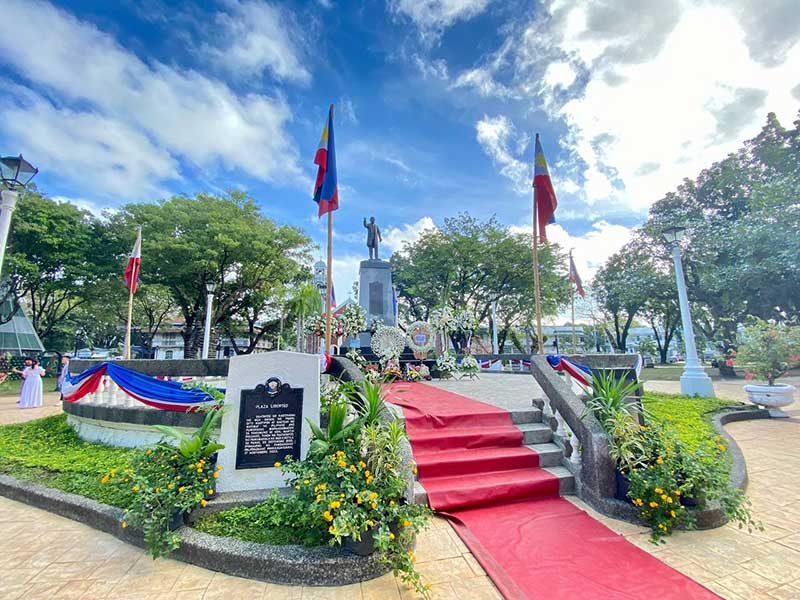
By Mariela Angella Oladive
As the nation marked the 127th anniversary of Rizal’s martyrdom on December 30, 2023, the Iloilo City Government, together with the Philippine National Police (PNP), educators, youth, and other socio-civic organizations gathered at Plaza Libertad to commemorate the event.
The program commenced with the Flag Raising Ceremony, Wreath Laying, Volley Fire/Taps, and Floral Offering at the Jose Rizal Monument.
The event’s theme, “RIZAL: Pundasyon ng Kahapon, Isinasabuhay Ngayon”, is attributed to how Rizal’s ideals and actions serve as a solid foundation for the nation’s history while encouraging their application and embodiment in the present.
Iloilo City Mayor Jerry P. Treñas in his message emphasized the need to honor Rizal’s sacrifices.
“He stood firm for our country and fought for the liberty that we enjoy today. We owe it to him to honor his sacrifices for our homeland and preserve it for generations to come.”
The ceremony took a reflective turn by urging citizens to revisit their understanding of nationalism and the pivotal role played by Jose Rizal in shaping the Philippines’ identity.
The keynote speaker, Dr. Rey Carlo Gonzales of the University of the Philippines-Visayas, delved into the idea of nationalism. He critiqued and challenged the conventional views on Rizal as the national hero.
Gonzales explored the evolution of Filipino identity, highlighting the constant invention of the concept of being Filipino and the changing definitions of the nation throughout history.
Gonzales argued against the common criticisms of Rizal, asserting that the significance of Rizal lies not in being the catalyst for the revolution but in giving birth to the Philippine nation.
“The significance of Rizal is not that he gave birth to the Philippine revolution, his significance is that he gave birth to the Philippine nation. The revolution was simply an expression of that nation, because of Rizal the Philippines is one of the first Asean countries to perceive itself as a nation even if it has transformed many times… The fact remains that the seminal roots of what we understand as Philippines today started with Rizal,” Gonzales stated.
“Martyrdom is what you would call probably the best symbols of not just siguro the birth of the nation. You can almost say nga it was almost like paglupok sang pusil nga nakapatay kay Rizal, amo na to ang senyales nga nabuhi na ang Pilipinas. In many ways it was a symbolic birth of the nation but at the same time, it was also an illustration of love and sense of patriotism,” he further explained in an interview.
He underscored Rizal’s approach to nationalism, focusing on mundane yet impactful actions such as addressing agrarian issues, building schools, and contributing to public works.
“Outside of the grand gestures portrayed in his novels and La Solidaridad, Rizal fought for the Philippines by trying to solve the Calamba agrarian reform, building schools, donating his lottery winnings for public works, treating people through whatever they could pay, and training marshals to prevent the spread of malaria…” Gonzales remarked reflecting on many positive contributions that Rizal made to the community.
The professor further urged the public to look into the importance of the mundane, illustrating that Rizal’s quiet efforts to improve daily life may be the very essence of his heroism.
The program also included an intermission number by Fort San Pedro National High School, adding a cultural touch to the commemoration.
The commemoration reinforced the message of the day, encouraging citizens to embody Rizal’s spirit in their everyday lives for the betterment of the nation.





















